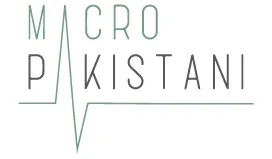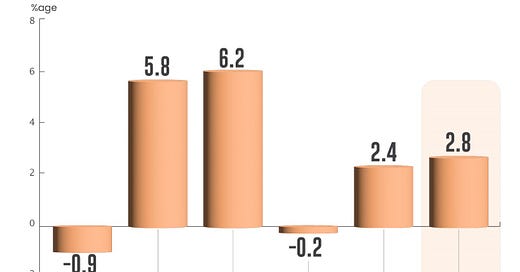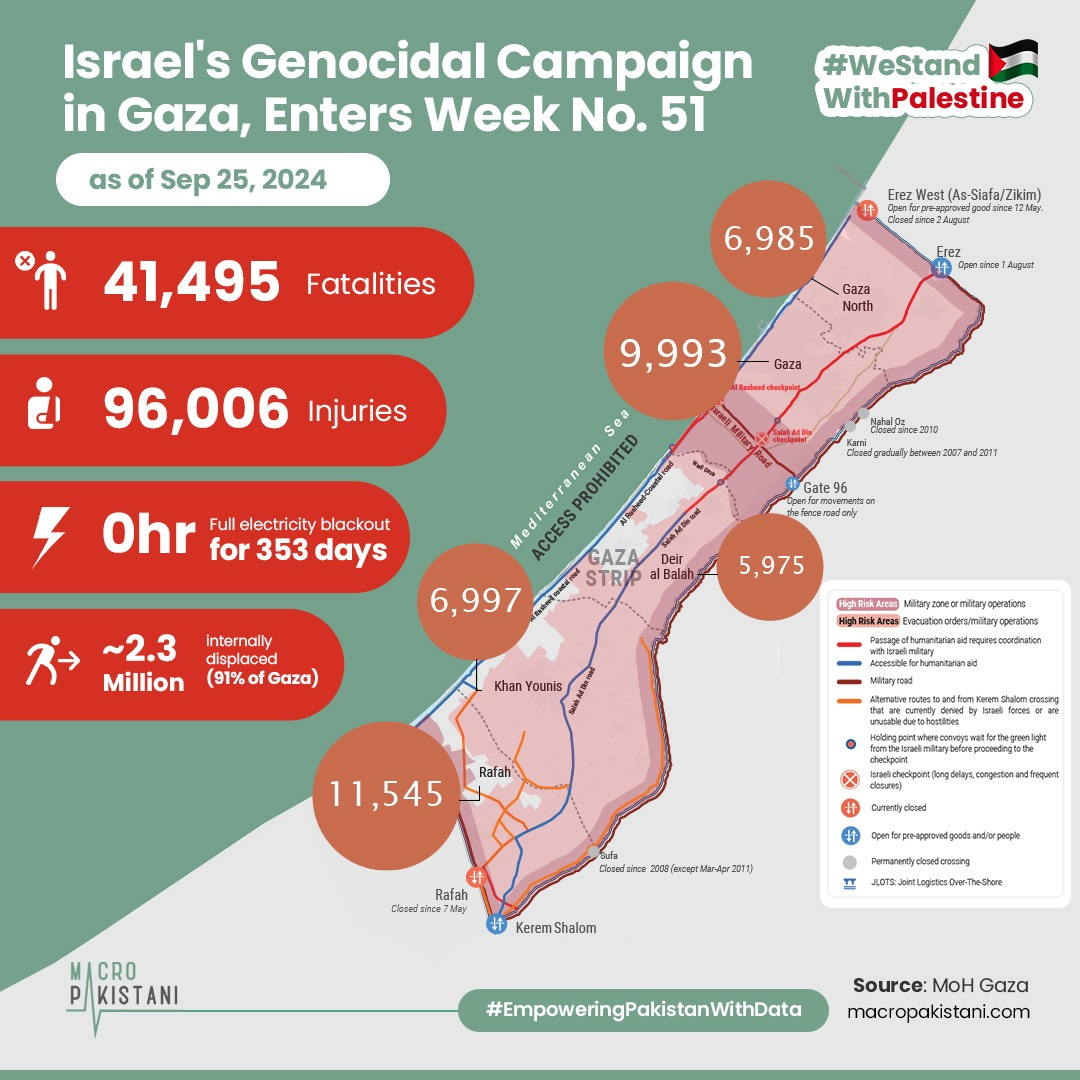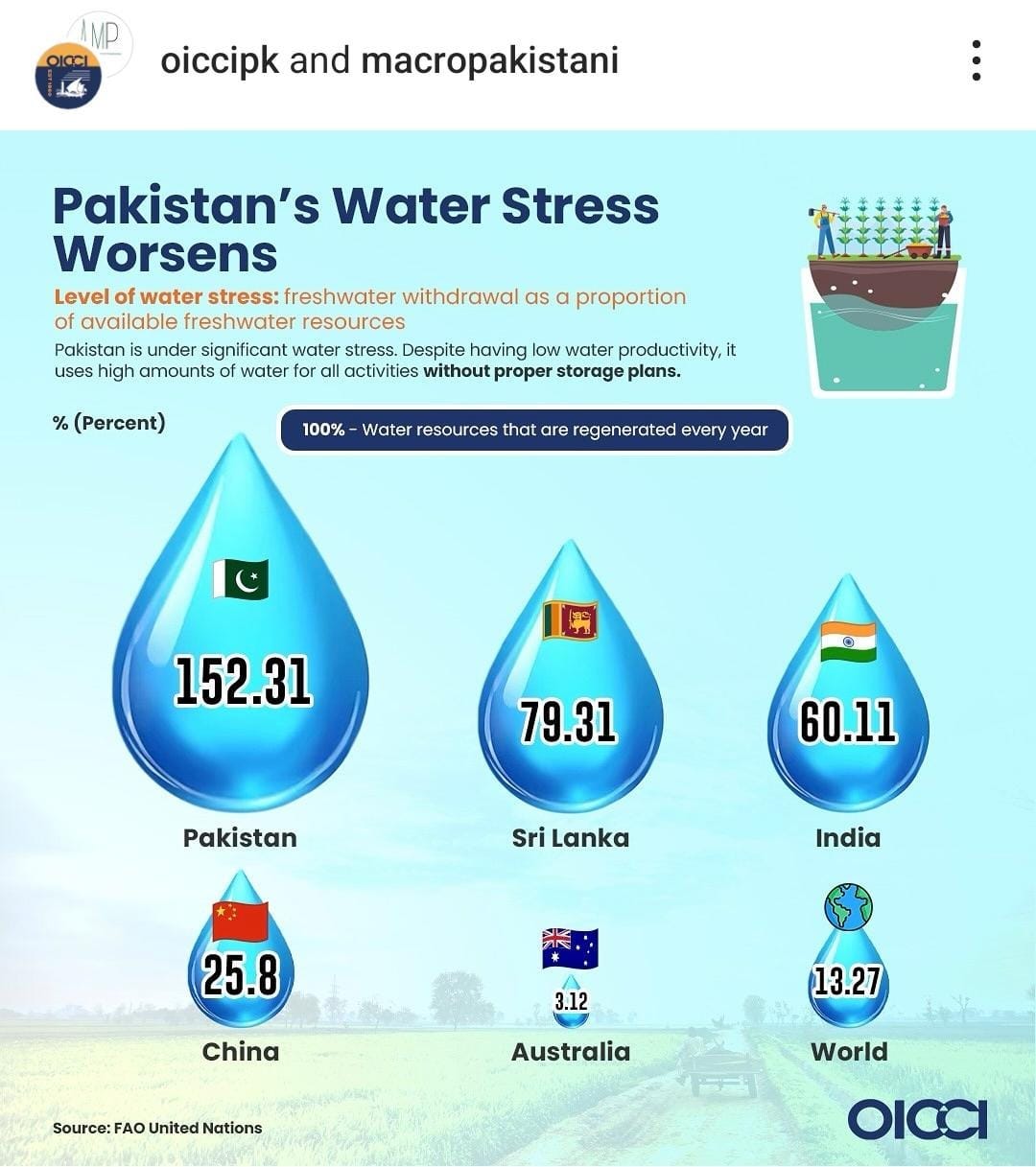Pakistan's Economic Recovery and Outlook in FY2024
Pakistan's economic recovery in FY2024 was driven by IMF-backed reforms, improved agricultural production, and higher remittances, though challenges in investment and inflation persist.

In FY2024, Pakistan's economy rebounded with 2.4% growth, recovering from a 0.2% downturn in FY2023, driven by reforms focused on fiscal discipline, energy sector efficiency, and exchange rate stabilization. Private consumption grew by 5.5%, fueled by increased agricultural income and remittances, while inflation eased to 23.4% from 29.2%.
Key crops like cotton, rice, and wheat saw substantial gains, bolstering external trade. However, investment remained sluggish, with gross fixed capital formation declining by 2.4%, reflecting ongoing challenges in the industrial and service sectors.
Inflation moderated in the second half of the year, prompting the central bank to lower the policy rate, which helped improve economic conditions. Despite a stronger agricultural sector and rising remittances, the trade deficit persisted at $24.4 billion.
Government efforts toward fiscal consolidation showed some success as the fiscal deficit narrowed, but high interest payments on public debt continued to strain public
finances.
How might continued reliance on agriculture and remittances affect long-term economic stability and growth in Pakistan?
Looking ahead, the economy is expected to grow by 2.8% in FY2025, supported by ongoing IMF-backed reforms. Private investment is projected to recover as access to foreign exchange improves, benefiting manufacturing and services. However, fiscal constraints, such as higher personal income taxes and reduced subsidies, could dampen private and public consumption. Inflation is forecasted to remain elevated at 15.0%, driven by fiscal measures and energy price adjustments.
Efforts to mobilize revenue and consolidate public finances aim to create fiscal space for social and development spending.Despite these prospects, Pakistan's outlook faces significant risks. External financing remains critical, and lapses in policy implementation could undermine investor confidence and exacerbate economic vulnerabilities.
Political instability and the country's susceptibility to climate-related disasters further complicate the economic landscape. Nonetheless, disciplined reform efforts, combined with favorable global conditions, could enhance Pakistan's fiscal and external stability in the medium term.
GRAPHIC
The madness of Netanyahu and his extremist Zionist government is now targeting other countires too. They persist in justifying a genocidal war in Gaza under the guise of self-defense, aiming to eliminate Hamas and free hostages held by resistance factions. In reality, this has unleashed devastation upon Gaza, killing, destroying, displacing, and starving the indigenous Palestinian population who have a rightful claim to the land.
Netanyahu's government is following the same brutal approach in Lebanon, exposing their true nature. Their aggression serves as a grim reminder of their violent history—massacres targeting civilians, including women and children. The bombardment of homes and civilian areas continues, mirroring the genocidal war in Gaza. In southern Lebanon, they have divided the region into so-called "squares," ordering civilians to evacuate villages allegedly used by Hezbollah to store weapons. In their campaign of fear, civilians are targeted to force them from their homes. The government uses fabricated AI-generated images to falsely accuse residents of supporting Hezbollah, all in an effort to weaken the resistance, depopulate villages, and create a buffer zone.
The aggression against Lebanon is not only an escape from the Gaza war to divide the attention of the world, but it is a continuation of the Occupation’s crimes. The aggression on Gaza is ongoing and will continue as long as Netanyahu continues in his insanity and arrogance by prolonging and expanding the aggression to other regions as well, with the aim of breaking the fraternal bond between the Palestinian and Lebanese Resistance.
In case anyone wants to contribute (to the Palestine solidarity campaign on Macro Pakistani) and send data-backed content, please feel free to send an email to fakiha.rizvi@brandnib.com
China’s investment in Pakistan’s electric vehicle (EV) sector could be a game changer for the country. Chinese EVs now make up 40% of the global stock in 2023, though exports are currently limited to Asia-Pacific and Europe. Investing in Pakistan’s EV sector through the second phase of CPEC (CPEC 2.0) presents an opportunity for both countries to expand these markets while contributing to Pakistan’s low-carbon development goals.
Pakistan’s water productivity, the amount of output it creates from its water resources, is at an all-time low. This is in contrast to the country’s unhindered usage of water. For instance, the agriculture sector alone utilises 70% of its renewable water resources, which is higher than its neighbours.
Macro Pakistanis who read this newsletter can directly give us feedback via Substack chat:
Data Visualization & Marketing Partner: Brand Nib
Visit: https://macropakistani.com/advertise/
Grateful for the ever-growing list of collaborators!
About Us: Macro Pakistani is a data-driven research platform that aims to provide a basic understanding of Pakistan’s economy. If you have an interest in contemporary news but are currently overburdened with sensationalism and specialized vocabulary, we are the platform for you.
How are we doing? Please send us any questions, comments or suggestions by replying to this email.






